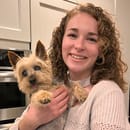As an incoming first-year student, I was told that I shouldn’t yet worry about requirements or declaring a major; instead, I should simply sign up for whatever classes interested me. Scrolling through course offerings, my gaze settled upon the Women, Gender, and Sexuality Studies (or WG&SS) Department. I thought, why not?, and signed up for an introductory course. This proved to be one of the best decisions I’ve made as a college student so far. My experience in WG&SS was incredible – empowering, frustrating, heartening, and striking all at once. Regardless of what your major is, how you identify, or whether you’re already familiar with women and gender studies, you should absolutely try to take this class at some point during your time at college if the course is offered to you. Here’s why:
1. Learn your history
I had learned about bits and pieces of the women’s suffrage movement in high school and had binged the TV series Mrs. America over the summer…and that was pretty much all I knew about women’s history. As for the history of the LGBTQ+ movement – I knew even less. In my WG&SS class, I learned about the first, second, and third waves of feminism as well as major protests and events that shaped the LGBTQ+ community. I found – and find – myself humbled by the powerful individuals who fought against sexism, racism, and homophobia so that myself and my peers could enjoy the freedom and rights we do today. I feel so indebted to and inspired by this history, and have an enhanced appreciation for the opportunities available to me. Taking WG&SS is worth it just for that.
2. Get informed
Discussions around sex, gender, orientation, feminism, etc. are constantly evolving. Taking this class helped me to become an educated and active participant, understanding the intricacies of issues that were previously unclear to me and exposing me to challenges I never knew others faced. When the #MeToo movement is discussed or abortion laws are considered, I am now better able to understand the stakes of the issue – where the controversy stems from and how decisions will influence society. In my class, we also discussed intersectionality and the experiences of women oppressed not only for their sex and gender, but for their sexual orientation, race, class, physical ability, and more. Let me make myself clear: I am by no means claiming to be an expert on what it is to be a person of color, to be queer, to be disabled, etc. and cannot speak for members of these communities. However, hearing from people of diverse backgrounds and studying issues that impact these groups helped me to realize the privileges I hold as a straight, white woman, and to be a more intelligent and compassionate ally to others.
3. Become a better everything
Having a better understanding of the ways in which others have been discriminated against helps to you avoid making dangerous stereotypes or engaging in prejudicial behavior that could hurt others. And gaining insight into the needs and desires of members of a particular community will help you to address said needs and desires more effectively. The knowledge gained from this class will make me a better friend, a better classmate, a better student, and a better colleague. And regardless of what occupation you go into – health, science, psychology, politics, etc. – instruction in WG&SS will help you to serve your clients more effectively and create more intelligent products.
4. Get inspired
Most of all, WG&SS is an empowering and inspiring class. While it is often challenging and frustrating to listen to the ways in which women and LGBTQ+ individuals were – and are – oppressed, learning about people who fought against an unjust status quo is electrifying, and may inspire you to make positive change in the world as well.


